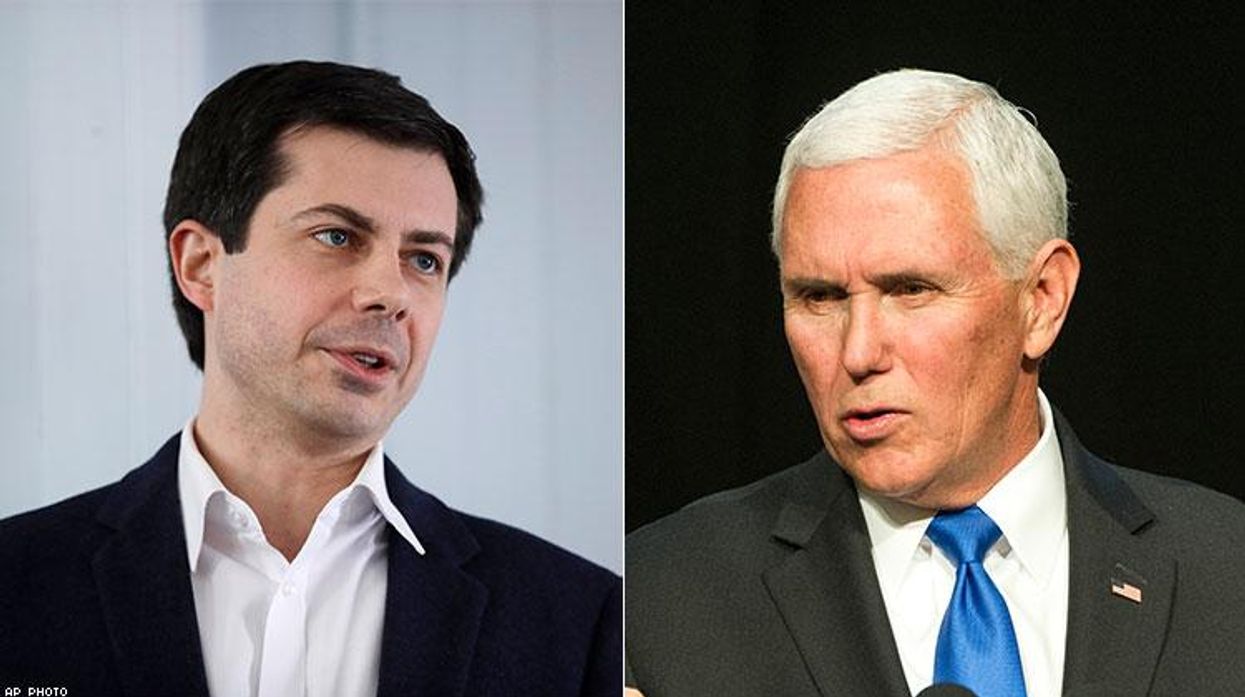Politics
Pete Buttigieg: Mike Pence Embraced 'Porn Star Presidency'

Did Pence stop "believing in scripture when he started believing in Donald Trump?" the gay Democratic presidential hopeful asks.
March 11 2019 9:56 AM EST
trudestress
By continuing to use our site, you agree to our Privacy Policy and Terms of Use.

Did Pence stop "believing in scripture when he started believing in Donald Trump?" the gay Democratic presidential hopeful asks.
Pete Buttigieg, the mayor of South Bend, Ind., and Democratic presidential hopeful, is questioning Mike Pence's religious beliefs because the vice president has become "the cheerleader of the porn star presidency" of Donald Trump.
Buttigieg, who is gay, made the comment during a presidential town hall hosted by CNN Sunday at the South by Southwest media festival in Austin.
Pence was governor of Indiana from 2013 to 2017, which overlapped with Buttigieg's tenure as mayor. During that time, Buttigieg noted, "I disagreed with him ferociously ... but I thought, well, at least he believes in our institutions and he's not personally corrupt, but then how could he get on board with this president?"
The mayor said he has a far different understanding of the Bible than Pence does, as the vice president is notorious for his extremely anti-LGBTQ views. "My understanding of scripture is that it is about protecting the stranger and the prisoner and the poor person, and that idea of welcome. ... And his has a lot more to do with sexuality and a certain view of rectitude. But even if you buy into that, how could he allow himself to be the cheerleader of the porn star presidency? Is it that he stopped believing in scripture when he started believing in Donald Trump?"
Trump is, of course, known for his alleged payoff to adult-film star Stormy Daniels to cover up his extramarital sexual encounter with her (something he denies), and for other actions and statements that are at odds with Pence's evangelical Christian beliefs.
At the town hall, Buttigieg also voiced support for the Equality Act, LGBTQ-inclusive nondiscrimination legislation set to be introduced in Congress this week, and for the abolition of the Electoral College (which allowed Trump to win the presidency). He backed off somewhat on support for a "Medicare for all" universal health insurance plan, as he said he'd explore a public option first.
Buttigieg announced in January that he's forming an exploratory committee with an eye toward seeking the Democratic presidential nomination. To qualify for the first two Democratic debates, each candidate must either have the support of 1 percent of respondents in three polls approved by the Democratic National Committee or raise at least $65,000 from 200 donors in 20 different states.
Charlie Kirk DID say stoning gay people was the 'perfect law' — and these other heinous quotes